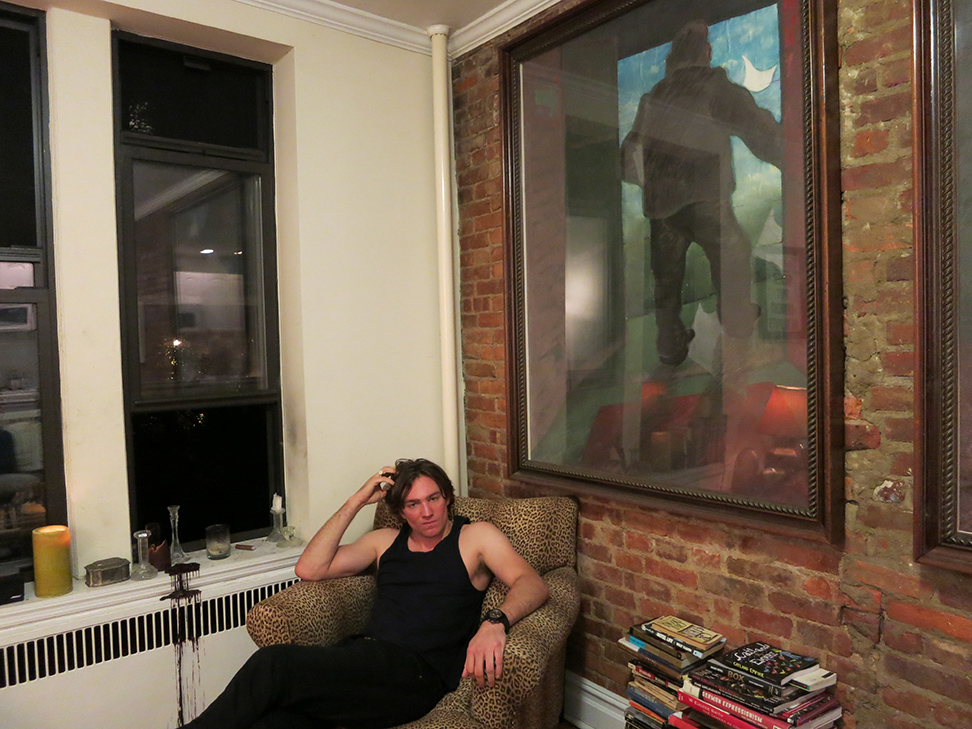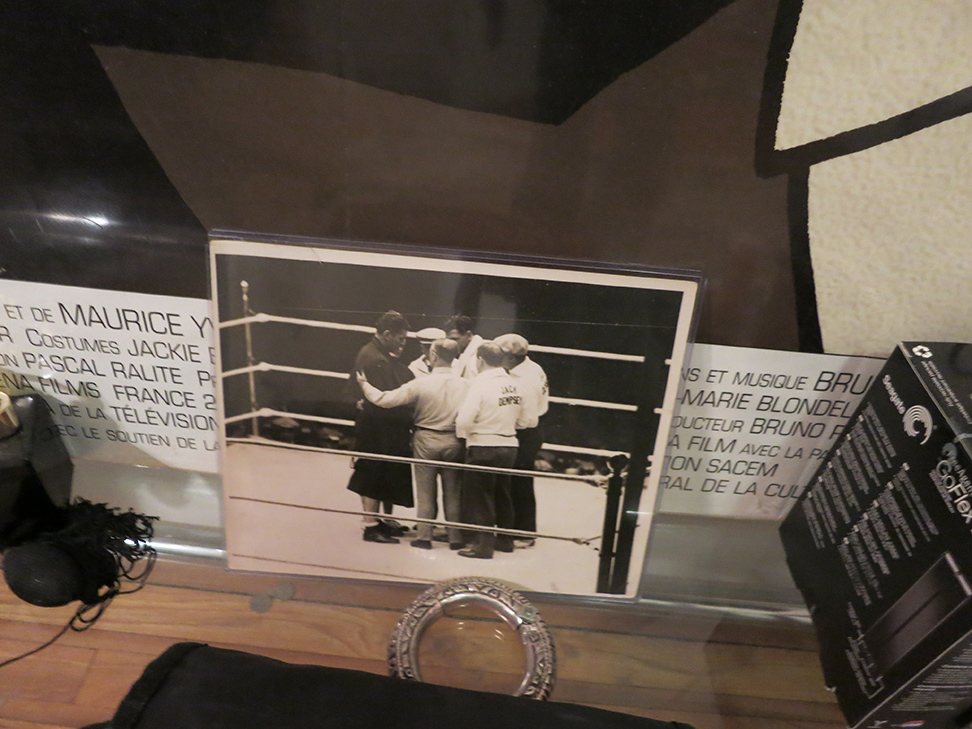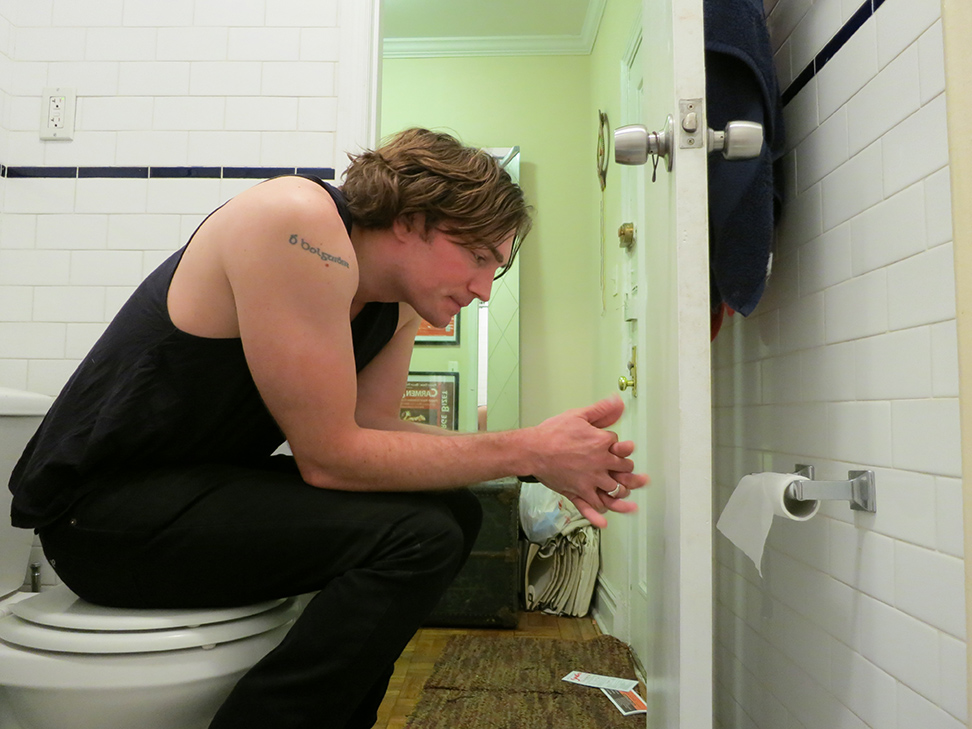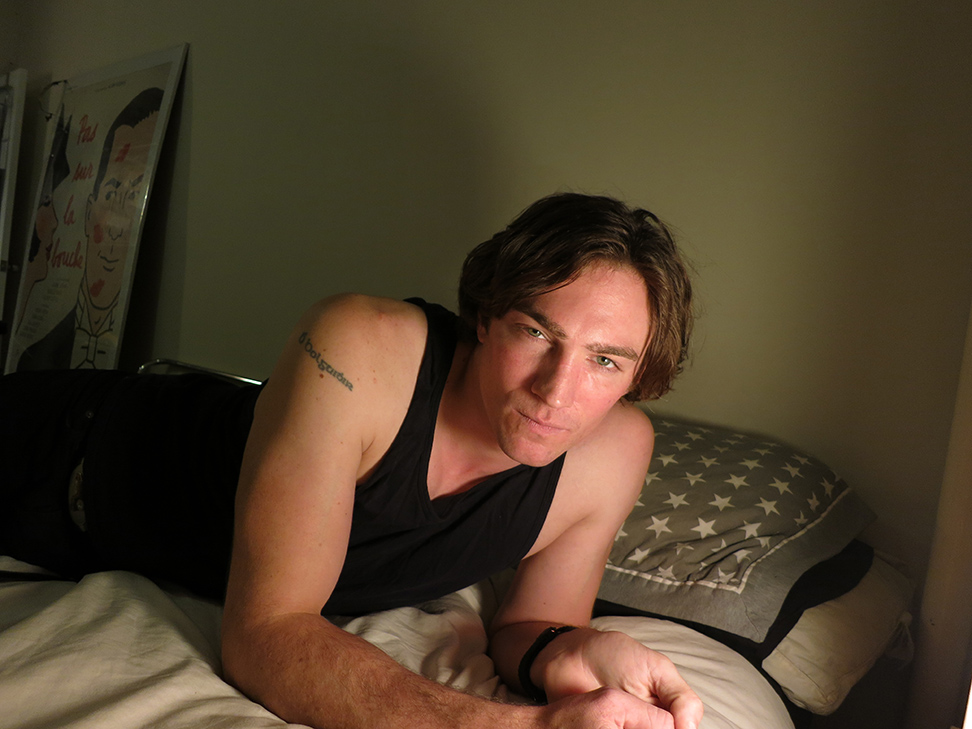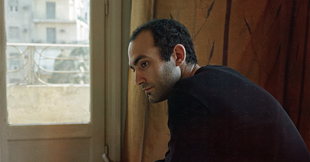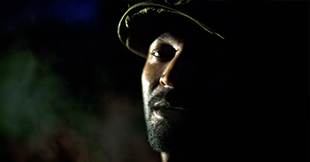
Written by Andi Magenheimer
Photographed by Tierney Gearon
Boxer, model, and award-winning filmmaker Jay Bulger looks as if he just got out of the shower. Messy brown hair is still damp, he stomps around his apartment with a bowl of cereal in hand.
“Hold on one sec, I need to get my fucking slippers on ‘cuz it’s cold as SHIT.” The window behind him reflects a white glare from the latest polar vortex—a storm turning New York City into the ninth circle of Dante’s Hell. Tilting my computer’s camera, I show him the view of banana leaves and California sunshine outside–and we set off on the favorite topic (and party game) of urban creative professionals: ‘Which coast would you rather live on?’
Eventually, we strike warmer winters off Bulger’s list of ‘Possible Life Outcomes’ when we land on the crux of the issue, “I can do the driving- I’ve been driving since I was young, obviously, but I just get distracted and hit things.” Feel free to face palm.
A mindset which desperately yelps into the void, ‘Bad drivers can be rehabilitated! With lessons! And practice!’ (drivers, for example, like me), isn’t necessarily appropriate in this case. As much as I want to encourage him to move to LA, Bulger’s Herzogian nightmares are fueled by an accident where he was hit by someone driving drunk– and texting on top of it. “It’s been a year now, but I got several herniated disks in my neck, so now, on top of being scared of myself…”
AM: “…You’re scared of others…”
JB: “…Terrified of other people. She stumbled out of her car and said, uh, ‘Ehmahgah, I’m sooo sorrehh.. I waz texting…’ and I was like, ‘What!? You’re drunk too?! I don’t know what’s worse!’”
Bulger’s patter is vibrant, peppered with silly accents and ridiculous noises to provoke a laugh, or diffuse tension. Within an hour, he uses the rarified dialect of ‘The Beavis’, ‘The Drunk Australian Woman in a Brooklyn Bar,’ the bizarre, nasal vocalizations of the modeling netherworld, (“…it was like a daily job of going and meeting these people, and them being like [demented voice] “AHH like his EYEbrows!” or them being like, “His Ahhbrows are so fuggin’ stupid-looking!”), and, more regularly, something closer to a sweetly excitable surfer dude.
He switches on and perks up noticeably when he starts talking about the details of his latest film, which has the working title Interzone. “It’s a visual, visceral and rhythmical journey through Morocco… Moroccan music is functional. And by functional I mean people live their life completely… in sync with their musical experience. Arab culture is one of the most influential in the history of mankind– especially from an artistic perspective. If you are an artist, potentially you owe something to the Arab world. Morocco is such an amalgam of so many different cultures… It’s really the African cultural melting pot…They have combined all the forms of different African music. Each town is [associated with] a different story. And as a result, each village or town has a completely different rhythm.”
It seems as if every generation has a torchbearer to illuminate Sufi music for the sexy urban elite. One group, the Master Musicians of Joujouka, was described by William S. Burroughs as a ‘4000 year old band.’ Brion Gysin was the first Western artist to be introduced to the Joujouka by painter and folklorist, Mohamed Hamri, whose mother lived in their village. He quickly brought Burroughs in, and opened up a club with Hamri in Tangier, called 1001 Nights, which became immensely popular with Westerners. In 1971 it was Rolling Stones Records releasing Brian Jones Presents The Pipes of Pan at Jajouka. In ’73 Ornette Coleman recorded, with the musicians, some of the tracks landing on his LP, ‘Dancing in Your Head.’ Composer and author of The Sheltering Sky, among others, Paul Bowles settled in Tangier in 1947 and is essentially a spirit guide for this project. In the middle of a deep exposition of his interest in molems, the musical leaders who perform and conduct trances, Bulger simply says, “Bowles is narrating my film posthumously.”
Paul Bowles’ journey through Morocco was in no way the drifting of a flaneur. In one year he travelled 25,000 miles around Morocco recording music for the Library of Congress with the aid of a grant from the Rockefeller Foundation. Working with Bill Laswell, whom Bulger refers to as his ‘musical molem,’ this may become one of the few films able to capture this region
and heritage using an expanded view that includes individual stories and visuals which surround the musical rites recorded by Bowles, and the avant garde that it influenced in the 50s 60s and 70s.
Bulger’s narrative focuses on transitional moments such as birth, marriage and the grief surrounding the death of a loved one. In essence, he’s talking about the life cycle of families and individuals in the Sufi religion in Morocco, whose rituals and music have been mythologized by artists and repressed by the more fundamentalist forms of Islam in such places as Iran and Afganistan. “One can express themselves through rhythm and dance and just let loose in front of a lot of people who are non-judgmental… And the collective euphoria is what heals one… That’s not to say that you will be healed forever but its to say that you will appease this inner spirit that is eating away at you, and let it come out. And through this rhythm,…the genie or their devil… whatever’s torturing [people] and ailing them comes out, and they dance, and their eyes roll back…. We’ve documented that in the zaouia. That’s never been filmed before. It’s not me sitting there for like a year hoping for something to happen. I went into a place and I improvisationally created narratives because… what I like making is music videos.”
Bulger explains the filming of the rituals surrounding fertility and birth with a great deal of enthusiasm, acting out the various roles. “In Guna for instance, they had this rose festival. It’s a kind of dance and celebration. The women look like flowers and the men look like bees.” He describes how women walk through the casbah holding babies and “BOOM, all of a sudden we’ll see that the perspective of the camera is a man’s, and they’ll come together and dance and, like, “Bzzz!” and the flower… [starts wiggling suggestively] … and then it’ll end! And it was the birth of this 7 day old baby.” He gave one of the mothers the equivalent of a year’s salary. “I was like, “Here’s $1,500, thank you so much for you 15 minutes of time- for letting me film your baby.” As he continues, you can almost see his heart swelling until he finally says, “It was a dream come true that I didn’t know that I had until I got there.”
Bulger’s fundraising video uses images of different Moroccan tribes, a variety of rural and street scenes, and one glorious view of the marijuana fields glinting in the bright North African sun. A true child of MTV, Bulger’s editing, color, form and tempo are stunning. This imagery brings a bright and refreshing perspective on an aging and deeply troubled musical genius.
Bulger’s previous work, a film called Beware of Mr. Baker is insightful and psychologically gripping; it offers audiences a window into the mind of an important figure in the development of popular music. When talking about the film, Bulger’s tone shifts from lightness and joy to dramatic disinterest.
“The only thing you need to know about “Beware of Mr. Baker” is that I made a movie about a guy who broke my nose with his cane.”
With a bit of prodding, he talks a little more, but this story is clearly an experience he is glad to leave in the past. “I finished it a long time ago…and it wasn’t the most spiritually uplifting experience.” In hindsight, he says it was cathartic. “It was a reminder that I can do whatever I want. You know, I’ve boxed. I’ve been in the ring. Here was Grendel in the cave, of sorts. I just went and lived in the cave. Negative, positive, whatever. Maybe I have a lot to prove, but I’m not scared of anything. I do have the mental toughness to put up with someone treating me like a piece of shit for months on end with an end goal of, ‘Oh yeah? Treat me like shit. Then watch me win awards, and you’re still gonna be alone in this fucking cave, Grendel.’” Bulger is a big believer in his ancestors. “I just kept thinking, ‘My grandfather was way more terrifying than you, and he would kick your fucking head in, Ginger Baker.’ he was a surgeon in the Pacific for seven years straight, and he would just saw peoples’ legs off. His name was Doctor James Dunn, and he was like, six foot six, and he was so terrifying.”
I ask if he thinks he has been lucky in his successes, he responds as if stung by a wasp, “I don’t consider anything luck. I create my own luck. I constantly think it’s about getting out of bed and making the right decisions…getting stuck at the crossroads is the defeat…It’s just making very quick decisions without looking back.”

